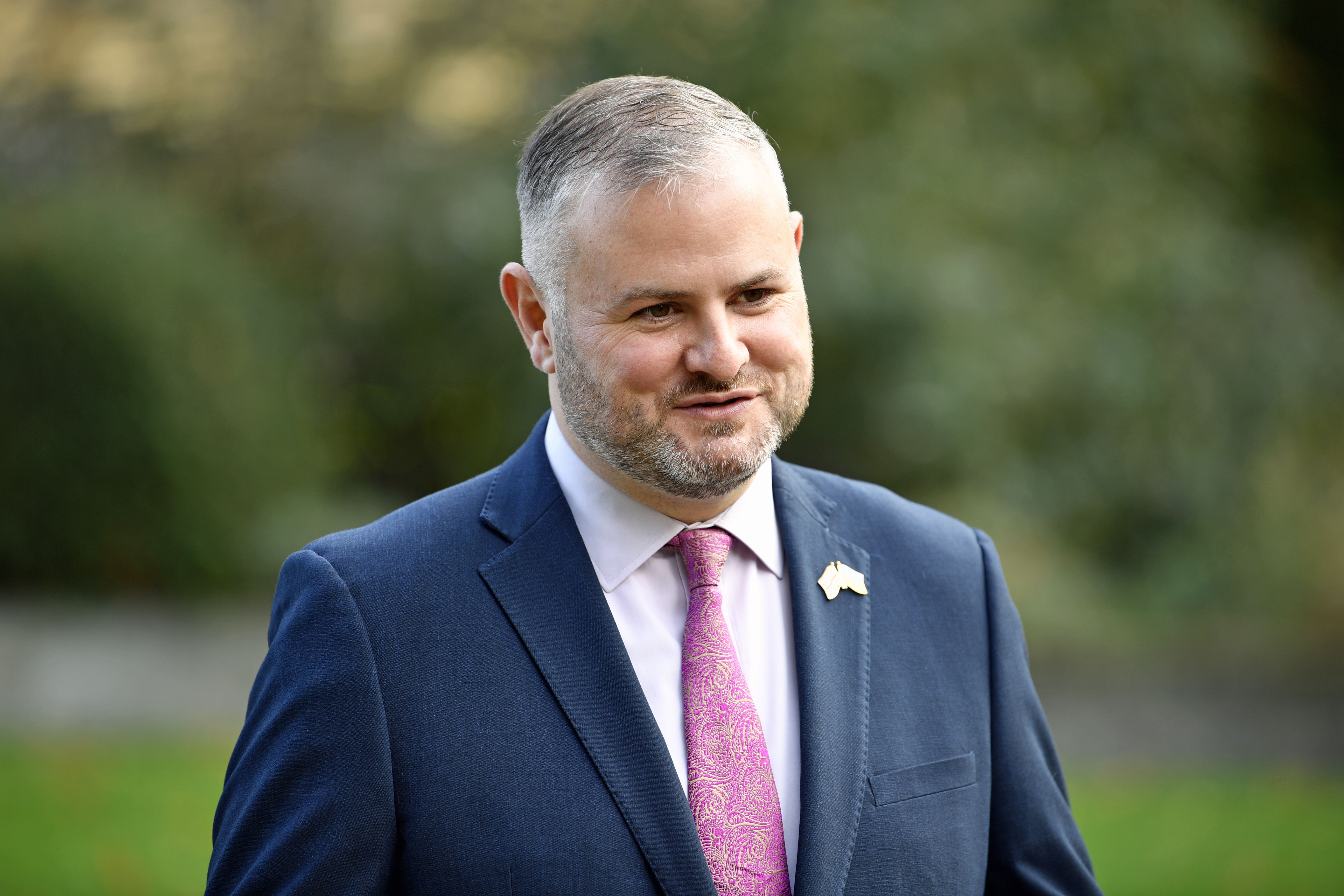WHO pandemic preparedness treaty ‘not acceptable’ to UK Government
A health minister has said the World Health Organisation must ‘fully respect national sovereignty’ in any future pandemic preparedness treaty.

Your support helps us to tell the story
From reproductive rights to climate change to Big Tech, The Independent is on the ground when the story is developing. Whether it's investigating the financials of Elon Musk's pro-Trump PAC or producing our latest documentary, 'The A Word', which shines a light on the American women fighting for reproductive rights, we know how important it is to parse out the facts from the messaging.
At such a critical moment in US history, we need reporters on the ground. Your donation allows us to keep sending journalists to speak to both sides of the story.
The Independent is trusted by Americans across the entire political spectrum. And unlike many other quality news outlets, we choose not to lock Americans out of our reporting and analysis with paywalls. We believe quality journalism should be available to everyone, paid for by those who can afford it.
Your support makes all the difference.The World Health Organisation’s draft pandemic preparedness treaty is not currently acceptable to the Government, a health minister has said.
Andrew Stephenson told Parliament the Government is “firmly fighting in Britain’s interest”, adding that the WHO must “fully respect national sovereignty” in any treaty which comes forward as a result of negotiations.
But MPs have called on the Government to allow Parliament to review and vote on the treaty before the UK becomes a signatory.
The WHO has proposed a convention, agreement or other international instrument on pandemic preparedness and response, intended to “ensure communities, governments, and all sectors of society – within countries and globally – are better prepared and protected”.
The organisation’s Intergovernmental Negotiating Body will compile a draft of the accord and will submit its outcome to the 77th World Health Assembly later this month.
Facing questions in the House of Commons, Mr Stephenson said: “The current text is not acceptable to us, therefore unless the current text is changed and refined, we will not be signing up.”
Conservative MP Danny Kruger (Devizes) said: “We know from the drafts that have been submitted in recent months what the real agenda of the WHO is. They want to have binding powers over national governments to introduce all sorts of restrictive measures on our citizens.”
Mr Kruger added the Government currently has the opportunity to oppose the treaty and asked: “Will the Government oppose any texts that abides this or a future government in how it responds to health threats? And finally, crucially, will the Government comply with CRaG (Constitutional Reform and Governance Act), the requirements to put the treaty to a ratification vote in Parliament?”
Mr Stephenson said: “The UK treaty-making process means the accord is, of course, negotiated and agreed by the Government.
“Parliament, as he will know, plays an important part in scrutinising treaties under the CRaG process and determining how international obligations should be reflected domestically.
“It’s important to remember that because the exact form of the board has not yet been agreed, the Parliamentary and the adoption process will depend on which article of the WHO constitution the accord is adopted under.”
Tory former home secretary Suella Braverman said: “Under no circumstances must we surrender our sovereignty or sign up to a lockdown charter.”
Mrs Braverman (Fareham) asked Mr Stephenson: “Will the minster agree that fundamentally, and to coin a phrase, no pandemic treaty is better than a bad pandemic treaty?”
Independent MP Andrew Bridgen (North West Leicestershire) called for a “deferment” of any WHO vote on a pandemic treaty “until this House and others around the world have had a chance to examine these very important details”.
Labour’s shadow health minister Andrew Gwynne said: “I want to be clear that a Labour government would not sign anything which would leave our population unprotected in the face of a novel disease.
“We’re debating a treaty that is still being negotiated by member states, and none of us know the final content or wording, so can the minister reconfirm to the House that the Government will not sign up to anything that would compromise the UK’s ability to take domestic decisions on national public health measures?”
Earlier in the session, Mr Stephenson said: “First, the Government will only accept the accord and targeted amendments to the international health regulations if they are firmly in the United Kingdom’s national interest, and no text has yet been agreed.
“We will only accept the accord and amendments by the world health assembly and adopt them if they are firmly in the UK’s national interest to do so.
“Secondly, this Government will only sign up to measures that respect our national sovereignty. And third, under no circumstances will we allow the WHO to have the power to mandate lockdowns, this would be unthinkable and has never been proposed. Protecting our sovereignty is a British red line.”
Mr Stephenson also dispelled the “myth” that the UK would give away a fifth of its vaccines in a future pandemic, adding: “This is simply not true, and of course we are a generous country, companies may make their own choices to donate vaccines, but this would be and should be entirely their decision.”